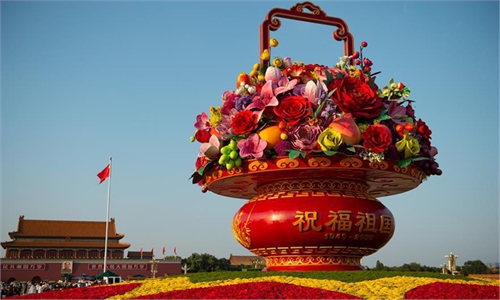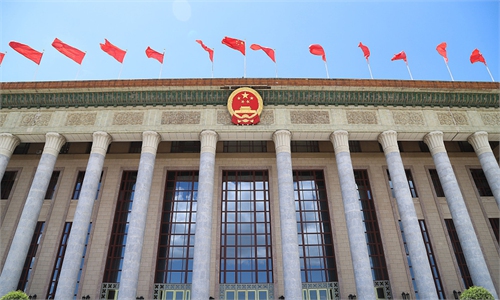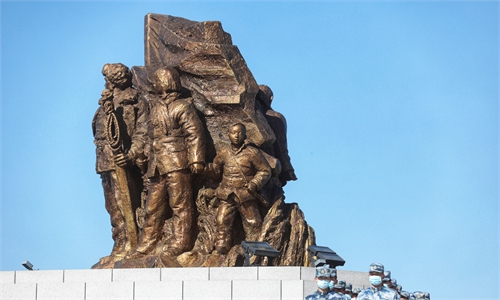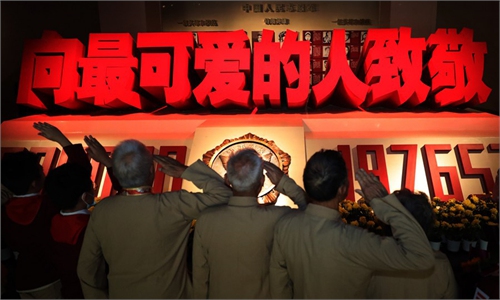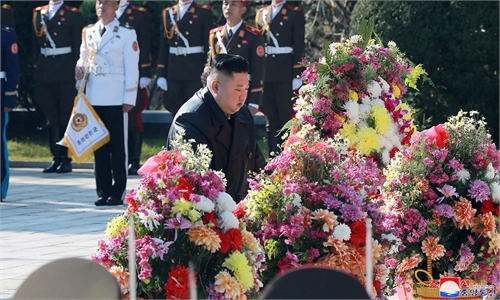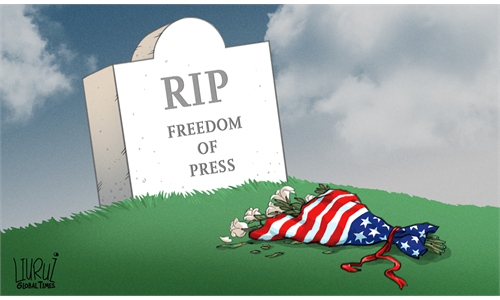Kuala Lumpur once prized non-alignment above all else – now it sees Beijing as more reliable than lectures from the West.- Murni Abdul Hamid
 Malaysian Prime Minister Anwar Ibrahim during a parade for Malaysian Independence Day celebrations last month in Putrajaya, Malaysia (Syaiful Redzuan/Anadolu via Getty Images
Malaysian Prime Minister Anwar Ibrahim during a parade for Malaysian Independence Day celebrations last month in Putrajaya, Malaysia (Syaiful Redzuan/Anadolu via Getty ImagesMalaysia’s approach in navigating great power rivalry since the Cold War has largely been based on the principles of non-alignment, neutralism, and equidistance. However, two contrasting snapshots of the country’s Independence (Merdeka) Day celebration – half a century apart – offer an interesting perspective on whether Malaysia’s contemporary position has shifted away from these principles.
On 31 August 1973, Malaysia’s second Prime Minister, Tun Abdul Razak, hastily left the joyous Merdeka celebration midway to depart for Algiers and lead the Malaysian delegation to the Non-Alignment Movement (NAM) Summit. It was his first time attending the summit. It had taken several attempts for Malaysia to become a NAM member, largely due to Indonesia’s opposition and influence within the Afro-Asian group during the Konfrontasi period. Malaysia’s experience of Konfrontasi and the retreat of the British from the region pushed the country to seek friends among other newly independent states.
When Malaysia finally became a NAM member in 1970, its foreign policy gradually shifted away from heavy reliance on the United Kingdom toward a more neutral and non-aligned stance. Against this background, Tun Razak strongly felt the need for Malaysia to be represented at the highest level in Algiers to signify the country’s commitment to non-alignment – even if it meant leaving the Merdeka celebration halfway.

Jump forward just over 50 years to 31 August 2025, Malaysia’s tenth Prime Minister, Anwar Ibrahim, left at the conclusion of the nation’s Merdeka celebration to immediately depart for China to attend the Shanghai Cooperation Organisation (SCO) Summit. It was the first time Malaysia had participated in the SCO, in which Malaysia is neither a member nor an observer. It was also the first time a Malaysian leader attended China’s “Victory Parade” in Beijing, which this year took place a few days later, to commemorate the end of the Second World War, alongside other leaders including from Russia, North Korea, Indonesia, Vietnam, Laos, Cambodia, Myanmar, and Iran.
Since becoming Prime Minister in late 2022, Anwar has visited China four times, with China’s President and Premier reciprocating accordingly (also a total of four times if including the upcoming ASEAN Summit and other meetings next month).
While China has been Malaysia’s largest trading partner since 2009, relations with China have further intensified in recent years both bilaterally and multilaterally. These include Malaysia’s active involvement in the Belt and Road Initiative (BRI), and participation in the Regional Comprehensive Economic Partnership Agreement (RCEP). Stronger ties also extend to decisions to allow Chinese companies to develop the country’s second 5G network and to revitalise Malaysia’s national car industry, the recent acceptance of China’s vision of building a Community with a Shared Future for Mankind, and the landmark creation of a bilateral mechanism with China to discuss maritime issues. Malaysia’s decision to join BRICS, and the initiative to bring in China into the ASEAN-GCC platform by hosting the first-ever ASEAN-GCC-China Summit in Kuala Lumpur, also illustrate the depth of relations.
The actions of the great powers leave little room for Malaysia to manoeuvre, and siding with the more predictable and reliable power seems to be the less risky option.
While Malaysia’s intensification of cooperation with China should not be viewed as a zero-sum game, it is hard to ignore that this occurred against the backdrop of deteriorating relations with the United States. From the perspective of Malaysian leaders, the more benign power and trusted partner today is not the United States, but China. This, in spite of several challenges, particularly in the South China Sea.
In Anwar’s speech during President Xi Jinping’s visit to Malaysia earlier this year, he praised China as a rational, steady, and reliable partner amid the turbulence of “economic tribalism” and threats to multilateralism and the rules-based order. Last year, when Anwar spoke off-the-cuff at a business luncheon in honour of Premier Li Qiang in Kuala Lumpur, he commended the attitude of the Chinese leadership as “friendly, courteous, full of respect, [and] understanding of cultures and differences”, in contrast to the “narrative from the others” and the “barrage of questions” from others – especially “the western” – on whether Malaysia’s close relations with China would be in Malaysia’s best interest.
Understandably, as an independent nation, no country appreciates being told who it should be friends with, especially when those doing the lecturing neither act as they preach nor have been reliable friends in the first place.
While closer relations with the United States would still serve Malaysia’s interests – particularly in the realms of the economy and defence – they are proving even more elusive under President Donald Trump. His arbitrary tariff impositions, aggressive rhetoric (even against allies), withdrawals from multilateral organisations, disregard for the rule of law, undermining of the global order, and coddling of Israel have been obstacles for Malaysian leaders in promoting closer ties with the United States. Domestically, various opinion polls in recent years have shown a steady decline in Malaysians’ favourable perceptions towards the United States, while favourable views of China and even Russia have increased significantly.
If the above trend persists, Malaysia might find itself moving even further away from its non-aligned, neutral, and equidistant stances that served it well in the past. At present, however, the actions of the great powers leave little room for Malaysia to manoeuvre, and siding with the more predictable and reliable power seems to be the less risky option.


